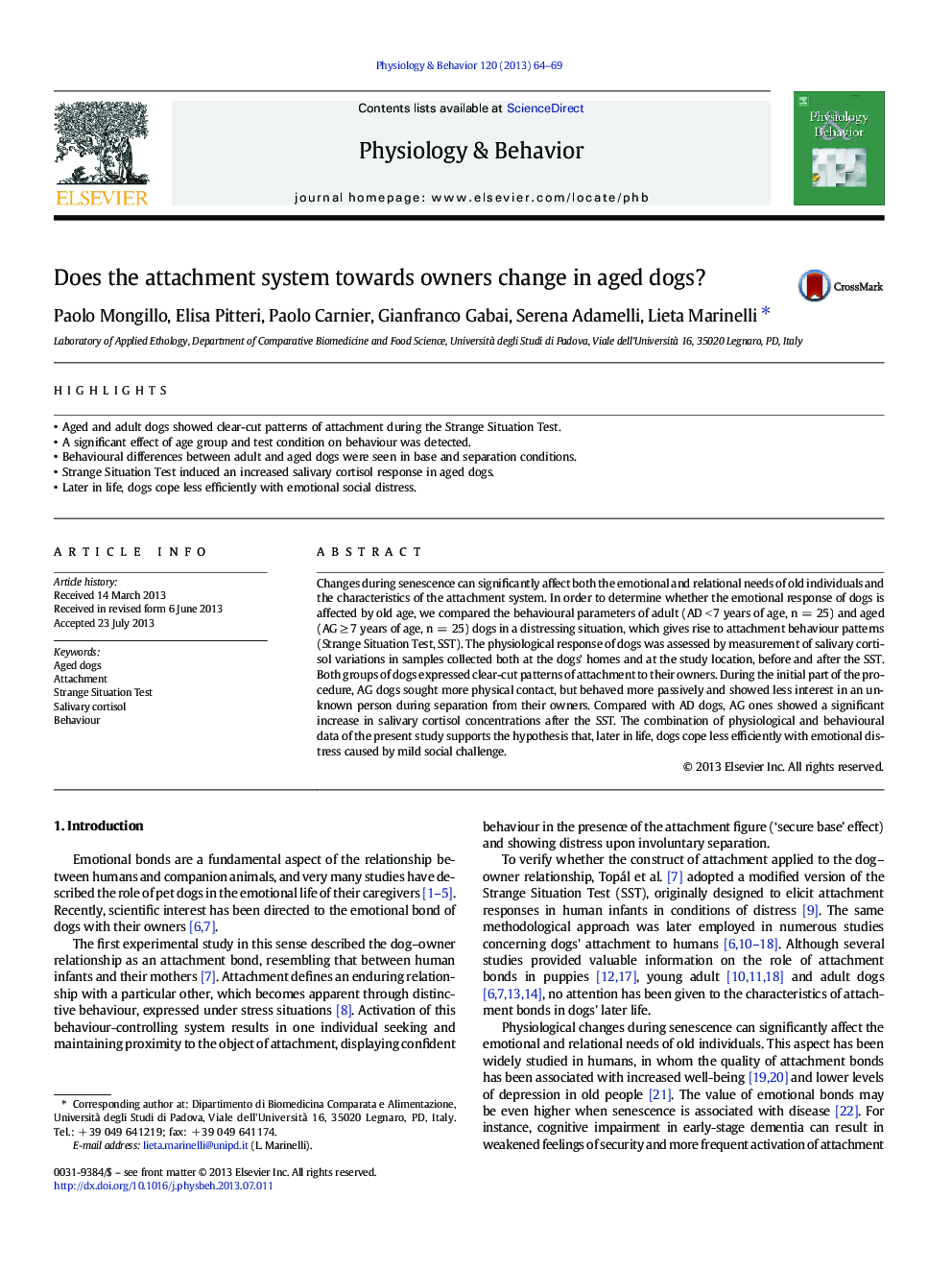| کد مقاله | کد نشریه | سال انتشار | مقاله انگلیسی | نسخه تمام متن |
|---|---|---|---|---|
| 5924623 | 1571197 | 2013 | 6 صفحه PDF | دانلود رایگان |
- Aged and adult dogs showed clear-cut patterns of attachment during the Strange Situation Test.
- A significant effect of age group and test condition on behaviour was detected.
- Behavioural differences between adult and aged dogs were seen in base and separation conditions.
- Strange Situation Test induced an increased salivary cortisol response in aged dogs.
- Later in life, dogs cope less efficiently with emotional social distress.
Changes during senescence can significantly affect both the emotional and relational needs of old individuals and the characteristics of the attachment system. In order to determine whether the emotional response of dogs is affected by old age, we compared the behavioural parameters of adult (AD < 7 years of age, n = 25) and aged (AG â¥Â 7 years of age, n = 25) dogs in a distressing situation, which gives rise to attachment behaviour patterns (Strange Situation Test, SST). The physiological response of dogs was assessed by measurement of salivary cortisol variations in samples collected both at the dogs' homes and at the study location, before and after the SST. Both groups of dogs expressed clear-cut patterns of attachment to their owners. During the initial part of the procedure, AG dogs sought more physical contact, but behaved more passively and showed less interest in an unknown person during separation from their owners. Compared with AD dogs, AG ones showed a significant increase in salivary cortisol concentrations after the SST. The combination of physiological and behavioural data of the present study supports the hypothesis that, later in life, dogs cope less efficiently with emotional distress caused by mild social challenge.
Journal: Physiology & Behavior - Volume 120, 15 August 2013, Pages 64-69
